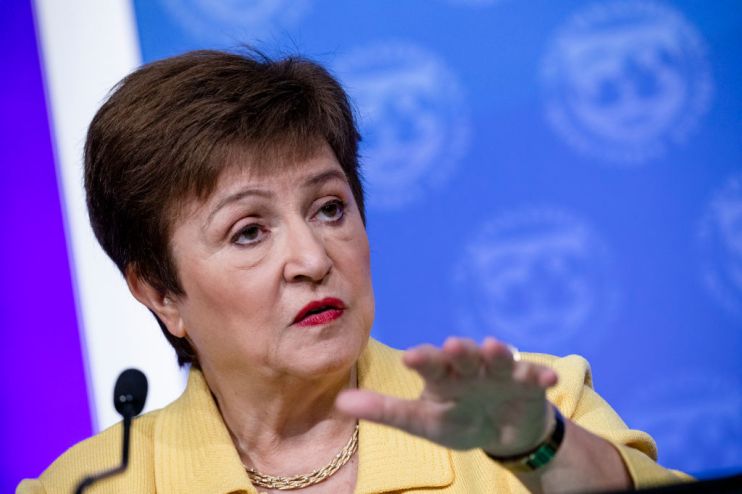Global growth to dive below three per cent and stay there till 2028, IMF chief warns

World economic growth will dip below three per cent during 2023 and is likely to stay at that level for the next five years, the head of the International Monetary Fund (IMF) said today.
Kristalina Georgieva, IMF managing director, made the assessment during a prepared speech while visiting Washington DC in advance of the IMF member spring meetings next week.
Georgieva said global growth in 2022 had dropped by almost half, from 6.1 to 3.4 per cent, and that what growth had occurred already in 2023 was the result of “resilient labour markets and strong consumer spending”.
She added that after a strong recovery in 2021 “came the severe shock of Russia’s war in Ukraine and its wide-ranging consequences”.
Despite an uplift from China’s reopening after Covid, the IMF expected the world economy to grow less than three per cent in 2023.
Speaking in advance of the IMF’s World Economic Outlook next week, Georgieva added: “Growth remains weak by historical comparison – both in the near and medium term. There are also stark differences between country groups.
“Some momentum comes from emerging economies—Asia especially is a bright spot. India and China are expected to account for half of global growth in 2023.”
Western economies faced a steeper climb, she claimed.
“Economic activity is slowing in the United States and the euro area, where higher interest rates weigh on demand. About 90 per cent of advanced economies are projected to see a decline in their growth rate this year,” she said.
“We project global growth to remain around 3 percent over the next five years – our lowest medium-term growth forecast since 1990, and well below the average of 3.8 percent from the past two decades,” she said.
“With rising geopolitical tensions and still-high inflation, a robust recovery remains elusive. This harms the prospects of everyone, especially for the most vulnerable people and countries,” she added.
IMF’s three priorities for action
Georgieva said global growth for all economies would require climbing “three big hills”: inflation, prospects for growth and financial solidarity.
One: Fighting inflation and safeguarding financial stability
Georgieva said she could not see robust growth without price stability, nor without financial stability.
She said the IMF expected central banks to stay the course in the fight against inflation, holding a tight stance to prevent a de-anchoring of inflation expectations.
“At the same time, they should address financial stability risks when they emerge – through appropriate provision of liquidity. The key is to carefully monitor risks in banks and non-bank financial institutions, as well as weaknesses in sectors such as commercial real estate,” she said.
Two: Improving medium-term prospects for growth.
Georgieva said economic growth could be improved “by accelerating the digital revolution, improving the business environment, and boosting human capital and inclusion.”
“Just closing the gap in women’s labour force participation could increase economic output by an average of 35 percent in countries with greater gender inequality,” she added.
Developing the green economy was also crucial to lifting growth as well as mitigating the impacts of climate change.
“Our collective goal of delivering on the Paris Agreement and boosting resilience will require redirecting trillions of dollars towards green projects. An estimated $1 trillion a year is needed for renewable energy alone. That will pay dividends in terms of growth and jobs,” she said.
Three: Fostering solidarity to reduce global disparities
Finally, Georgieva called on wealthier IMF members to help poorer nations.
“For the weakest members of our global family, additional support from wealthier countries is essential.”
“I would like to make a double plea on their behalf: help them handle the burden of debt, which was made so much harder by the shocks of the past years; and secondly, help ensure that the IMF continues to be in a position to support them in the years ahead.”
“It is now more important than ever to step up cooperation – to strengthen the ropes that tie us together – on this issue and the full range of economic challenges we face. Only then can we climb these hills together.”